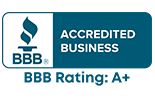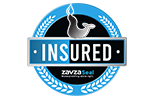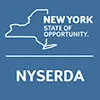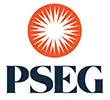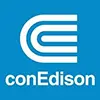Poor indoor air quality (IAQ) is a health, productivity, and compliance concern for commercial building owners. In public environments like schools, offices, hospitals, and government facilities, contaminants such as mold spores, volatile organic compounds (VOCs), carbon dioxide, and fine particulates can accumulate unnoticed. Over time, these pollutants lead to respiratory irritation, reduced concentration, and potential violations of New York’s strict IAQ and occupational safety regulations.
Across Long Island and New York State, public buildings are required to meet local and federal air quality standards that protect both occupants and employees. Non-compliance can result in complaints, regulatory citations, and even temporary facility closures; all of which are preventable through proactive testing and maintenance.
At Zavza Seal, we specialize in certified IAQ testing and remediation for public buildings, including mold inspection, humidity control, and HVAC-based air diagnostics. Our team ensures your facility not only passes inspection but maintains a safe, healthy indoor environment year-round.
Get a Free Air Quality Test Now! Contact Us to Schedule Yours Today!
Why Air Quality Testing Is Critical for Public Buildings
Indoor air quality directly affects both the health and performance of those who spend their days inside public facilities. Studies show that people spend over 90% of their time indoors, meaning the condition of a building’s air is one of the most influential, yet, often overlooked aspects of occupant well-being.
Common IAQ issues in public buildings include mold spores, dust, carbon dioxide buildup, VOCs, formaldehyde, and airborne bacteria. Over time, these contaminants can cause headaches, fatigue, respiratory issues, and even trigger “sick building syndrome.”
Public facilities such as schools, government offices, and healthcare centers are also held to higher safety and liability standards. Proactive air testing not only ensures compliance but also prevents potential health complaints, lawsuits, and costly tenant or staff turnover.
Key Regulations and Standards That Apply
Air quality in public buildings is governed by a mix of state, federal, and local standards that define acceptable contaminant levels, testing procedures, and response requirements. Zavza Seal helps building managers stay compliant with all applicable regulations while maintaining a healthy environment for occupants.
New York State Department of Health (NYSDOH)
- Provides IAQ guidance for schools, daycares, and other public-use facilities.
- Enforces mold assessment licensing and post-remediation verification under Article 32 of the NY Labor Law.
OSHA & EPA Requirements
Federal standards define the baseline for safe indoor air in workplaces and schools. These guidelines ensure public buildings maintain healthy environments and protect occupants from airborne hazards.
- OSHA 29 CFR 1910 establishes acceptable limits for air contaminants in workplace environments.
- The EPA’s IAQ Tools for Schools program outlines baseline testing and maintenance recommendations for educational institutions.
Local Building Codes and Facility Policies
Beyond federal requirements, New York City and Long Island municipalities enforce their own air quality testing standards to safeguard public spaces. Voluntary building programs also encourage continuous air monitoring as part of sustainable operations.
- NYC and Long Island municipalities may require periodic IAQ testing for public and commercial facilities.
- LEED and WELL Building Standards promote ongoing monitoring for enhanced indoor environmental quality.
Common Contaminants Found in Public Buildings
Public buildings experience a wide range of airborne contaminants that can accumulate without proper ventilation, maintenance, or humidity control. Regular testing identifies these pollutants early, before they lead to health complaints or code violations.
| Contaminant | Primary Source | Health Impact | Testing Method |
|---|---|---|---|
| Mold Spores | Water intrusion, humidity | Allergies, asthma, respiratory irritation | Air sampling / surface swab |
| VOCs (Volatile Organic Compounds) | Paints, adhesives, furniture | Headaches, nausea, fatigue | VOC monitor / laboratory analysis |
| Carbon Dioxide (CO₂) | Poor ventilation | Fatigue, poor concentration | CO₂ sensors / data logging |
| Particulate Matter (PM2.5 / PM10) | HVAC systems, dust, pollution | Respiratory irritation, coughing | Particulate counter |
| Formaldehyde | Carpeting, pressed wood, finishes | Eye and throat irritation | Air sample cartridge test |
Each contaminant tells a story about the building’s ventilation health, moisture balance, or material safety and testing helps trace it back to the root cause.
How Often Should Air Quality Testing Be Conducted?
Air quality testing frequency depends on the type of facility, occupant sensitivity, and environmental conditions. In New York, proactive monitoring is a cornerstone of regulatory compliance.
- Schools and Childcare Facilities: Every 6–12 months or immediately after any water intrusion or HVAC malfunction.
- Hospitals and Healthcare Buildings: Continuous monitoring in compliance with ASHRAE 170 ventilation standards.
- Office Buildings and Public Facilities: At least annually, or whenever occupants report respiratory or comfort-related symptoms.
- Renovation or Mold Event: Mandatory pre- and post-remediation testing to verify that air quality is safe for re-occupancy.
What’s Included in a Professional Air Quality Assessment
A comprehensive IAQ evaluation is a complete diagnostic process designed to pinpoint both visible and hidden contamination sources. Zavza Seal’s certified inspectors follow a proven, standards-based workflow:
- Initial Walkthrough & HVAC Review: Identify potential contamination sources and assess ventilation efficiency.
- Air and Surface Sampling: Collect targeted data on mold, VOCs, particulates, and allergens.
- Humidity & CO₂ Monitoring: Track ventilation balance and occupant load issues.
- Thermal Imaging & Moisture Scanning: Detects hidden water intrusion or insulation failures.
- Lab Analysis & Reporting: Provide certified results compared against NYSDOH and EPA thresholds.
- Remediation Recommendations: Outline actionable solutions for compliance, comfort, and long-term health protection.
When Air Quality Testing Reveals a Problem
When test results show contamination, prompt action prevents escalating damage and health risks. Zavza Seal provides full-service mold remediation and air quality restoration, including:
- Identifying moisture or mold sources early through moisture mapping and thermal scans.
- Integrating HVAC cleaning, dehumidification, and HEPA filtration upgrades for sustained performance.
- Applying EPA-registered antimicrobial treatments to neutralize mold and bacteria.
- Conducting post-remediation verification (PRV) to ensure complete safety compliance.
Benefits of Routine IAQ Testing for Public Facilities
In public environments; from schools and hospitals to municipal offices, indoor air quality directly impacts comfort, productivity, and liability. Over time, dust buildup, HVAC inefficiencies, and hidden moisture can silently degrade the health of your building and its occupants.
Routine IAQ testing helps facility managers detect these issues early, comply with evolving regulations, and maintain a clean, efficient indoor environment.
Here are some of the benefits:
- Comply with OSHA, EPA, and NYSDOH standards for public safety.
- Reduce employee absenteeism and occupant complaints.
- Extend HVAC lifespan by detecting inefficiencies early.
- Support LEED, WELL, and Fitwel building certifications.
- Build public trust with transparent, documented test reports.
Why Choose Zavza Seal for Air Quality Testing
Zavza Seal combines certified IAQ testing with advanced diagnostics to detect mold, VOCs, and ventilation issues. We deliver fast, compliant solutions that protect occupants and keep your facility within OSHA, EPA, and NYSDOH standards.
Here are some benefits of working with us:
- Certified Mold and Indoor Environmental Quality Specialists
- Experience Across Commercial, Educational, and Public Sectors
- Advanced IAQ Testing Equipment and Accredited Lab Partnerships
- Full-Service Remediation, Sealing, and Insulation Integration
- Free Initial Inspections and Transparent Reporting
Zavza Seal’s end-to-end approach ensures compliance, comfort, and clean air that lasts.
Air Quality Testing Requirements for Public Buildings: Final Thoughts
Maintaining clean indoor air is a commitment to public health, safety, and trust. Whether it’s a school, office, or municipal building, proactive air quality testing ensures a healthier environment for everyone who walks through your doors.
Schedule Your Air Quality Assessment With Zavza Seal’s Certified IAQ Team Today!
Frequently Asked Questions About Air Quality Testing in Public Buildings
What Contaminants Are Tested During an Air Quality Inspection?
A professional IAQ inspection tests for mold spores, VOCs (volatile organic compounds), carbon dioxide (CO₂), particulate matter (PM2.5/PM10), and formaldehyde. These tests identify pollutants from moisture, building materials, or poor ventilation that affect health and compliance.
How Often Should Schools or Offices Perform IAQ Testing?
Most schools and offices should test indoor air quality every 6–12 months, or immediately after any water damage, renovation, or occupant complaints. High-traffic public facilities benefit from ongoing monitoring for optimal air safety.
What’s the Difference Between Mold Testing and Full Air Quality Analysis?
Mold testing focuses on detecting fungal spores and moisture-related growth, while a full air quality analysis includes additional contaminants such as VOCs, CO₂, and fine particulates for a complete picture of indoor environmental health.
Can Air Quality Testing Help With Building Code Compliance?
Yes. Air quality testing supports OSHA, EPA, NYSDOH, and NYC Building Code compliance by documenting air contaminant levels and verifying ventilation standards — essential for inspections, certifications, and liability protection.
What Happens If My Building Fails an Air Quality Test?
If results exceed safety limits, Zavza Seal provides a custom remediation plan that may include HVAC cleaning, dehumidification, air filtration upgrades, or mold removal. Follow-up post-remediation testing confirms that the building meets all IAQ and health standards.



